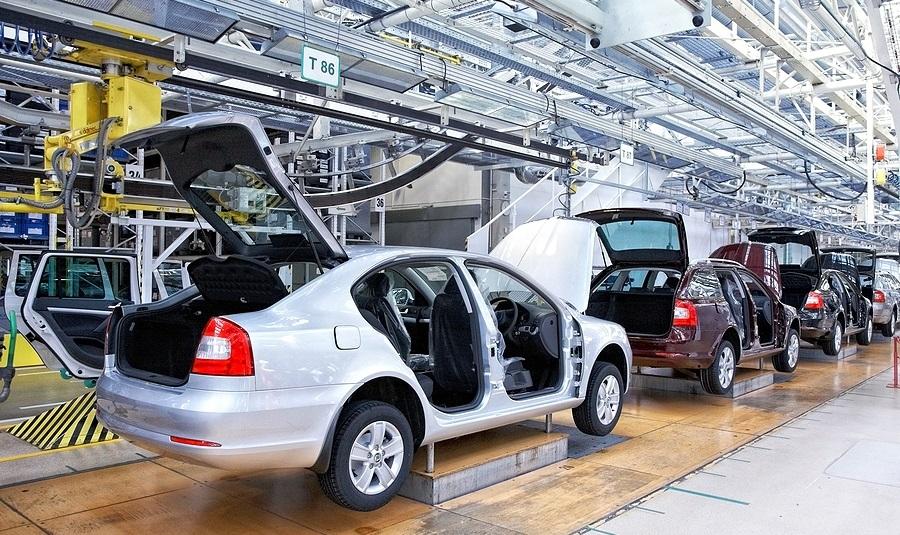Analysis

March 16, 2017
Trump Announces Rollback of CAFE Standards
Written by Sandy Williams
President Trump announced on Wednesday the rollback of fuel economy standards that were established by executive action near the end of the Obama administration.
Speaking to automotive executives and workers in Detroit, MI, Trump said, “Today, I am announcing that we are going to cancel that executive action. We are going to restore the originally scheduled mid-term review, and we are going to ensure that any regulations we have protect and defend your jobs, your factories.”
Trump criticized the mid-term review of standards that was “necessary because the standards were set far into the future—way, way into the future.”
He added, “If the standards threatened auto jobs, then commonsense changes could have and should have been made.”
Increasing automotive production and jobs has been a high priority of the Trump administration which has vowed to keep automobile production in the U.S., reduce “industry-killing” regulations, and lower corporate taxes.
The Corporate Average Fuel Economy standards, (CAFE), required auto producers to meet an average 54.5 miles per gallon standard by 2025. A standard of 35 miles per gallon was set for new 2017 models, increasing to 39 miles per gallon in 2020 and progressing toward the 2025 goal. The standards are part of an effort to reduce automotive emissions that contribute to pollution and global warming.
The automotive industry has made significant progress in technological advances and use of lightweight materials like advanced high strength steels, aluminum, and carbon to improve fuel efficiency. The industry, however, claims that the CAFE rules would boost vehicle prices. The EPA estimates compliance will cost the automotive industry $200 billion, a number that Auto Alliance said is a low estimate.
Motor Trend reported that according to automakers, complying with the current standards would increase vehicle prices by $1800 by 2025 and cause as many as 150,000 automotive jobs to be lost by 2021. The low price of gasoline has also shifted consumer buying towards larger vehicles like trucks and SUVs which are notorious for higher gas consumption, making sufficient demand for more efficient cars questionable.
In a September 2016 report to the Energy and Commerce Committee, the Auto Alliance said, “Automakers have sped the deployment of new fuel-efficient models in an effort to meet the aggressive standards. The question isn’t whether automakers will continue to do so but rather how and by when?”
In a letter to the EPA on February 21, the Alliance said the 2022-2025 standards “threaten to depress an industry that can ill afford spiraling regulatory costs. If left unchanged, those standards could cause up to 1.1 million Americans to lose jobs due to lost vehicle sales.”
The rollback does not have an immediate effect on the industry but restarts a review process that could lead to a reduction in the standards.
Mitch Bainwol, President & CEO, Auto Alliance praised the President’s decision:
“We applaud the Administration’s decision to reinstate the data-driven review of the 2022-2025 standards. By restarting this review, analysis rather than politics will produce a final decision consistent with the process we all agreed to under ‘One National Program’ for GHG and fuel economy standards.
“The Trump Administration has created an opportunity for decision-makers to reach a thoughtful and coordinated outcome predicated on the best and most current data. After all, these decisions impact the more than 7 million Americans dependent on autos for employment, as well as the driving public seeking affordable transportation. Our industry is committed to producing even safer and more energy-efficient vehicles in the future and that’s what this process is all about.”
Critics Denounce Decision
Critics of the decision included California Gov. Jerry Brown who said the decision to rollback the emissions standards “is an unconscionable gift to polluters.”
“Once again, you’ve put the interests of big oil ahead of clean air and politics ahead of science,” said Governor Brown in a letter sent to U.S. EPA Administrator Scott Pruitt.
In a separate letter to automobile manufacturers Brown said, “Your action to weaken vehicle pollution standards – standards your own members agreed to – breaks your promise to the American people. Please be advised that California will take the necessary steps to preserve the current standards and protect the health of our people and the stability of our climate.”
New York Attorney General Eric Scheiderman announced he will lead a coalition to stop the review of the standards. He is joined by attorney generals from Massachusetts, Oregon, Rhode Island, Vermont, Washington and the Pennsylvania Department of Environmental Protection. The group issued a joint statement that read:
“Weakening these commonsense standards would undermine successful efforts to combat the pollution emitted by vehicles – emissions that cause widespread, substantial harm to public health and are one of the largest sources of climate change pollution. An extensive technical study by the Environmental Protection Agency already found that the standards are fully and economically achievable by the auto industry. Relaxing them would increase the air pollution that is responsible for premature death, asthma, and more – particularly in our most vulnerable communities.
“We will vigorously oppose attempts by the Trump Administration to weaken our vehicle emission policies and put our public health at risk, and we won’t hesitate to stand up for the right of our states to adopt stricter pollution standards that provide critical protections to the health of our residents and our environmental resources.”
Congressman Frank Pallone, Jr. (D-NJ) said, “We should be moving forward with new clean technology and not grinding progress in the transportation sector to a halt. Today, the Trump Administration threw the gears firmly into reverse, slowing the drive toward improved air quality, lower consumer costs, and reduced dependence on foreign oil.”






